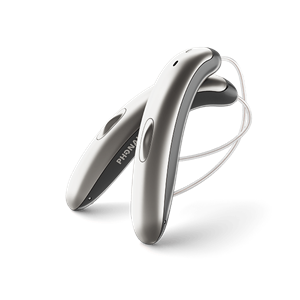3 ways to protect your hearing while staying at home | Connect Hearing

3 ways to protect your hearing while staying at home | Connect Hearing
5 Min.
Publication Date: April 30, 2020
While you are spending more time at home and away from loud and busy environments, it is still important to make sure you are protecting your hearing. Keep reading for 3 ways to protect your hearing while social distancing at home.
1. Wear protection when operating power tools
Spending more time at home means more time to get to those projects and chores you never seem to have time for. Whether you’re working on a project in your home workshop or tending to your lawn more often, it’s important to remember to protect your ears if using power tools at home.
Make sure to wear both earplugs and earmuffs when operating power tools such as a lawn mower or power saw. Consistent exposure to sound above 85 decibels, such as that from outdoor machinery, can cause serious damage to your hearing. At 91 decibels, a lawn mower can cause damage after just 2 hours of use. Power saws and many other power tools used in home improvement projects operate at noise levels of 110 decibels.
When operating power tools at home, try to do so in short bursts and make sure to wear the proper ear protection. You can purchase earplugs and earmuffs from your local hardware store or drugstore. If you are spending a lot of time in loud environments, talk to your hearing specialist about custom made earplugs.
2. Be careful with headphone use
Being home more often might also mean you’re spending more time wearing headphones. Perhaps it’s for video calling your loved ones and friends, or for listening to music while exercising. Whatever the activity, it’s important to be conscious of the amount of time you are wearing headphones and the level of volume you are using.
Excessive use of headphones at a loud volume can cause permanent damage to your hearing as well as cause tinnitus, headaches and irritability. The reason for this is headphones produce high intensity sound waves inside your ear that overwhelm the hearing cells responsible for sound transmission. This overload can cause injuries that in time can lead to hearing loss. In fact, 5% of all cases of hearing loss can be attributed to improper use of headphones.
To keep your hearing safe, make sure to keep the volume of your headphones at a normal conversational level (around 60% of the maximum volume level). The type of headphones you use also makes a difference. Look to wear over-the-ear or noise cancelling headphones rather than ear buds, as they make it easy to hear the audio sound at much lower volumes.
3. Keep wearing your hearing aids
More time at home and away from loud and busy environments might make you more likely to wear your hearing aid less. You might think you don’t need to hear the subtle sounds of a house, such as footsteps or the humming of a dishwasher. However, it is important to stay consistent with wearing your hearing aid, even at home.
The majority of our hearing is done in the brain and not with our ears, which is why it’s important to consistently expose the brain to sound through the use of hearing aids. When you wear your hearing aid, you hear more sounds. When you expose your brain to more sounds, it is able to readjust to the increased volume of noise again and eventually the amplified sounds from your hearing aid will seem more natural.
Having success with your hearing aid isn’t a process that happens overnight. It takes time for your brain to get used to the level of hearing again. This is why it’s important to keep up with consistent use of your hearing aids, even while at home.
Stay safe, stay connected
For more hearing advice, tips and resources during this time, head to our Client Services Hub.
Author
Connect Hearing Canada



